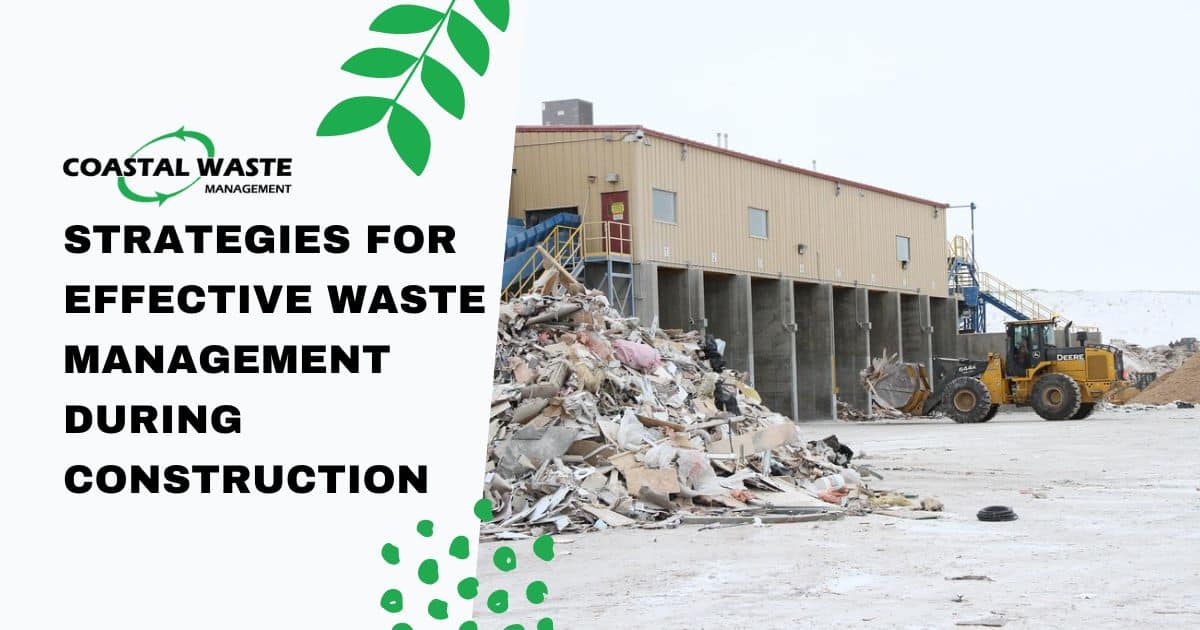
Dealing with construction waste is a big deal everywhere, and Australia’s no different. Each year, the construction and demolition industry here churns out over 27 million tonnes of waste.
That’s a lot! So, what’s the big deal about it?
Well, managing all that waste properly is super important. That’s where strategies for effective waste management come into play.
This article dives into how we can tackle this issue smartly and sustainably. We’ll look at what Australia is doing to manage construction waste better and explore some practical ideas that can make a real difference.
So, let’s get into it!
Understanding the Challenge
Construction projects create a ton of waste, from things like concrete and wood to metals and plastics. When we don’t handle this waste properly, it can mess up the environment and overload landfills.
That’s why the Australian Government has rolled out the National Waste Policy. It’s all about changing how we deal with waste, focusing on strategies for effective waste management.
The goal? To move towards a circular economy where we cut down on waste, and reuse and recycle resources as much as possible.
Following the Waste Hierarchy
The cornerstone of effective waste management is the waste hierarchy, which prioritises actions in the following order: avoid, reduce, reuse, and recycle. By adhering to this hierarchy, construction companies can minimise waste generation from the outset of a project.
This reduces environmental impact and enhances cost-effectiveness by optimising resource utilisation.
Recycling and Reuse
Recycling construction waste, particularly concrete, offers significant environmental and economic benefits. Recycled concrete can serve as aggregate in new concrete mixes or be utilised in road construction, reducing the demand for virgin materials and conserving natural resources.
Similarly, salvaging and reusing materials like timber and steel from demolition sites can further mitigate waste generation and lower project costs.
Government Initiatives and Guidelines
Governments at both the state and local levels play a vital role in shaping waste management practices. In Western Australia, initiatives such as the Waste Avoidance and Resource Recovery Strategy 2030 set ambitious targets for waste reduction and material recovery in the construction sector.
Guidelines like the Construction Waste Management Plan Guidelines developed by WALGA offer clear direction to industry stakeholders, promoting greater waste diversion from landfills.
Public-Private Partnerships
Private companies specialising in construction waste management, such as Coastal Waste Management, offer tailored solutions to clients, ensuring compliance with regulatory requirements and fostering sustainable practices. By partnering with such firms, construction businesses can streamline their waste management processes and access expertise in implementing best practices.
Challenges and Opportunities
Despite progress, challenges persist in waste management during construction, particularly regarding inconsistent guidance and approaches among local governments and the private sector. Addressing these challenges requires continued investment in education, infrastructure, and collaboration across sectors.
Initiatives like the Roads to Reuse program in Western Australia exemplify the potential for innovation and collaboration in achieving waste management goals.
Building a Sustainable Future Through Effective Waste Management
Effective waste management during construction is crucial for protecting the environment, saving resources, and ensuring our communities stay healthy and sustainable. By using smart strategies like reducing waste, recycling materials, and working closely with the government and private companies, the construction industry can make a big difference in how we handle our waste.
Coastal Waste Management offers a service for bulk waste collection Perth from construction sites, which helps keep our cities clean and safe. When we all work together and take action, we can create a future where we produce less waste and use our resources wisely.
By using these strategies in our construction projects, we can build strong and sustainable communities that will last for generations.
Related Articles:

